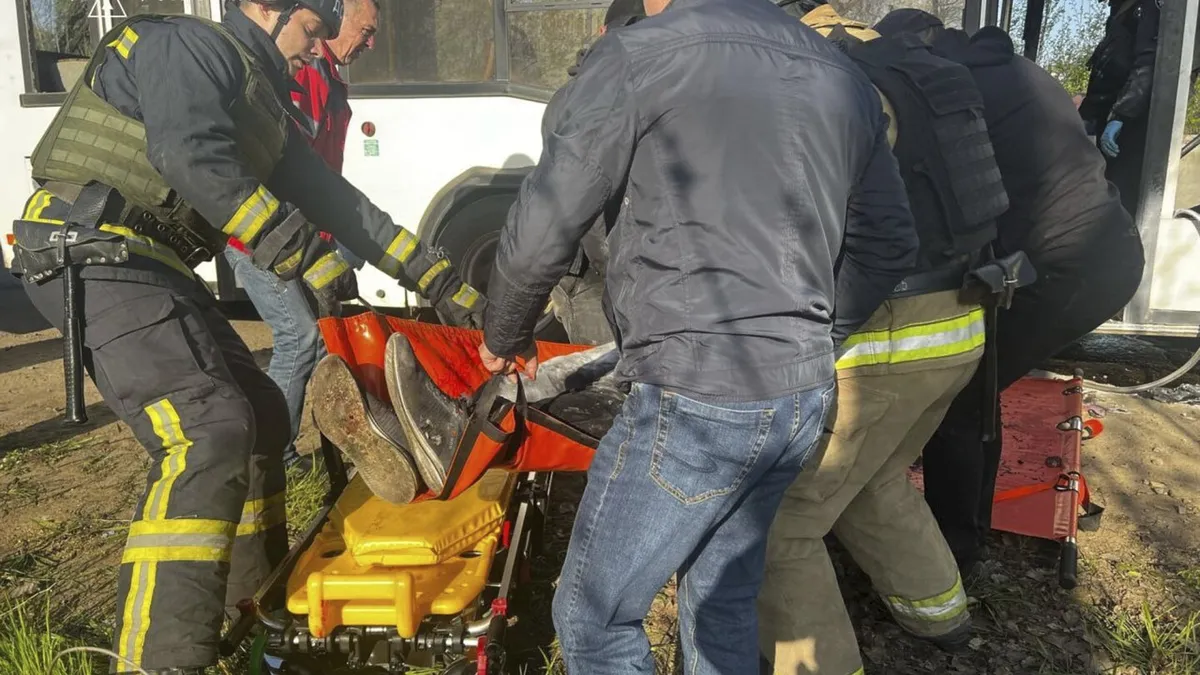
In a significant turn of events, a scheduled meeting on Wednesday involving top diplomats from the U.S., U.K., France, and Ukraine aimed at negotiating a peace deal between Russia and Ukraine was abruptly cancelled at the last minute. This decision reflects the persistent challenges in international efforts to resolve the ongoing conflict that has plagued the region for over three years.
U.K. Foreign Secretary David Lammy announced that the planned discussions in London would now only include lower-ranking officials. This shift followed a statement from the U.S. State Department on Tuesday, indicating that Secretary of State Marco Rubio was unable to attend due to a scheduling conflict. His unexpected withdrawal has cast doubt on the future direction of the negotiations.
Ukrainian President Volodymyr Zelenskyy has firmly ruled out the possibility of ceding any territory to Russia as part of a peace agreement, labeling such proposals as a “nonstarter.” He made this statement in light of reports suggesting the Trump administration may have proposed a deal allowing Russia to retain control over occupied Ukrainian regions.
Efforts to establish even a limited 30-day ceasefire have proven elusive, as both sides continue to engage in a war of attrition along the extensive 1,000-kilometer (620-mile) front line. The situation escalated on Wednesday morning when a Russian drone attacked a bus in Marganets, eastern Ukraine’s Dnipropetrovsk region, resulting in the tragic deaths of seven women and two men, along with injuries to over 40 others.
President Donald Trump has expressed a desire to end the conflict, stating last week that negotiations were “coming to a head.” This sentiment was echoed by Rubio, who hinted that the U.S. might withdraw from negotiations if they do not show progress. The attendees of the meeting now include retired Lt. Gen. Keith Kellogg, Trump’s envoy for Ukraine and Russia, as well as Ukrainian officials such as Andrii Yermak, the head of Ukraine’s presidential office.
Yermak confirmed via X that despite the changes in U.S. participation, the Ukrainian delegation, which also included Foreign Minister Andrii Sybiha and Defense Minister Rustem Umerov, had arrived in London to pursue diplomatic discussions. He emphasized Ukraine’s commitment to achieving a full and unconditional ceasefire as the preliminary step towards a comprehensive and lasting peace.
The last-minute changes came amid rising concerns that the U.S. might pressure Ukraine into ceding territory to Russia as part of a potential peace deal. President Zelenskyy rejected this notion, stating during a press conference in Kyiv, “There is nothing to talk about — it is our land, the land of the Ukrainian people.”
Despite the ongoing negotiations, Russia has effectively dismissed U.S. proposals for an immediate halt to hostilities, imposing stringent conditions on any potential ceasefire. Trump has previously claimed that he could resolve the conflict “in 24 hours” if elected, yet he has voiced frustration with both Zelenskyy and Russian President Vladimir Putin.
Some European allies express skepticism regarding the U.S. strategy of exchanging land for peace. However, there is also recognition among these allies that Russia currently holds territory in five regions of Ukraine, including Crimea, Luhansk, Donetsk, Zaporizhzhia, and Kherson. A senior French official indicated that any immediate ceasefire should align with the existing lines of contact.
Ukraine's territorial integrity and aspirations for stronger ties with Europe remain a top priority for many European nations. Although the U.K. had tempered expectations for a breakthrough in London, it acknowledged the importance of this week for ongoing diplomatic efforts to halt the violence.
Analysts suggest that Russia may not be in a hurry to finalize peace talks, given its current advantages on the battlefield. President Zelenskyy reiterated on Tuesday that Ukraine’s delegation was authorized to discuss only an unconditional or partial ceasefire with Russia, expressing readiness to engage in talks afterward.
Kremlin spokesman Dmitry Peskov has warned that reaching a settlement could be a lengthy process. Although Putin announced a unilateral 30-hour ceasefire last Saturday, reports from Ukraine and British officials indicate that Russian attacks persisted during this period. The Associated Press has not been able to verify whether a ceasefire was indeed observed along the extensive front line.
As both Russia and Ukraine prepare for the upcoming spring-summer military campaign, the dynamics of the conflict remain complex and fluid, leaving the prospect for peace still uncertain.